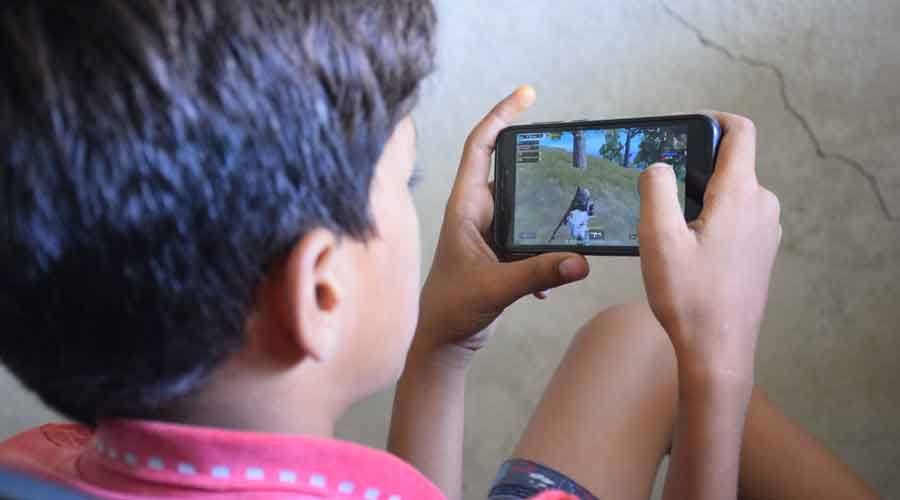The Centre has issued an advisory for parents and teachers on ways of protecting children playing online games from getting exploited or bullied in cyberspace, but will not ban any games.
MPs had earlier expressed concern that children were playing online games using their phones or tablets anywhere and at anytime, affecting their schooling and social life and exposing themselves to cyber abuse.
The games are so designed that each level is more complex than the previous one, with the players pushed to their limit to progress in the game, Friday’s advisory says.
It adds that playing without self-limits leads to addiction and gaming disorder, and that the gaming companies entice the children into buying more levels. It therefore advises parents to watch out against in-game purchases by their children.
Some of the dos and don’ts:
⚫ Caution the children against sharing personal details while downloading games.
⚫ Avoid registering credit cards or debit cards on apps for subscriptions.
⚫ Advise children not to download software or games from unknown websites. “Tell them to beware of clicking links, images and pop-ups in the websites as they may contain a virus and harm the computer, and may contain age-inappropriate content.”
⚫ Check the age rating of any game the child is playing and advise them not to communicate with strangers through the web cam, private messaging or online chats, as this increases the risk of abuse or bullying by other players.
⚫ Children should not engage in gaming for long hours without break.
⚫ If something wrong happens while playing, the player should stop immediately and take a screenshot using the “print screen” button and report it.
⚫ Children should use a screen name different from their real name.
⚫ Ensure your child accesses the Internet from a computer placed in the family space. Ensure the device has an antivirus programme.
⚫ Watch out for any unusually secretive behaviour on the child’s part, particularly relating to online activity, or any sudden increase in the time spent online, especially social media, or in the phone numbers and email contacts on the child’s device.
⚫ Teachers should ensure that children are sensitised about the pros and cons of the Internet from time to time.
BJP member Sushil Modi had said in the Rajya Sabha on December 3 that before Covid, the weekly time Indians spent on mobile gaming was 2.5 hours, which was 11 per cent of their total smart phone time.
During the lockdown, he said, this rose to 4 hours and, currently, more than 43 crore people are playing online games. By 2025, this will increase to 65.7 crore, he said.
In India, the number of mobile games downloaded in the last quarter before Covid struck was 1.86 billion, which increased to 3 billion during the third quarter of 2020, Modi said.
He urged the government to tax online gaming and frame regulations. Members across parties echoed Modi’s concerns.
Chairperson Venkaiah Naidu termed online gaming a “kill game” and asked information technology minister Ashiwni Vaishnaw to take note.
On December 8, two Lok Sabha members asked whether the government would ban online games. Vaishnaw said the ministry had no “legislative jurisdiction” over these games.
“Entries 34 and 62 of List II of the Seventh Schedule of the Indian Constitution provide for regulation and taxation of ‘betting and gambling’ to be under states’ legislative powers,” Vaishnaw said in a written reply.
He said some state governments were regulating online games within their territories.
“This ministry does not have legislative jurisdiction over contents of Internet games except that it has the power to order blocking of public access to information on Internet,” Vaishnaw said.










